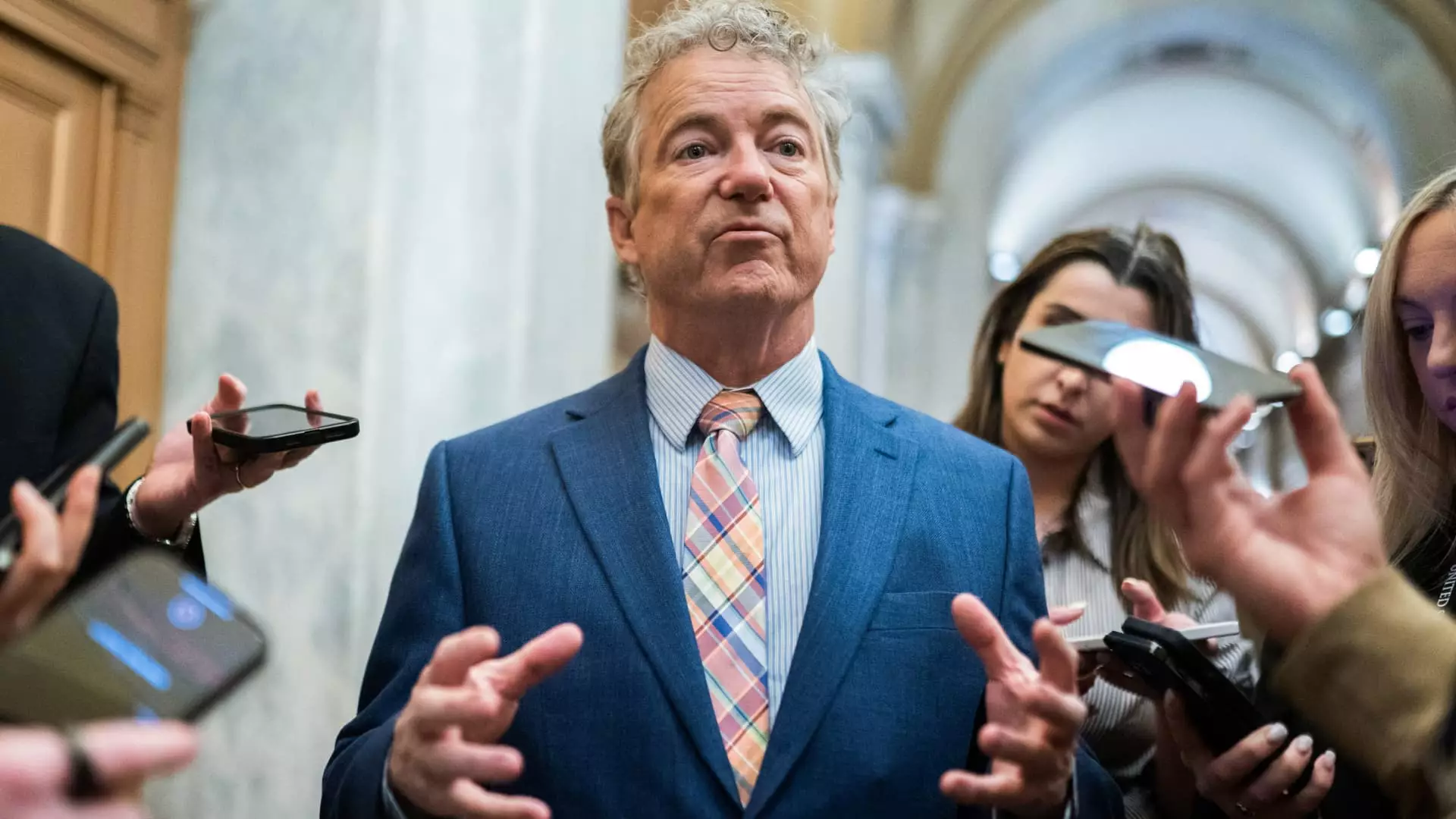The rift between President Donald Trump and Senator Rand Paul highlights the fundamental clash within the Republican Party over fiscal responsibility and governance. Trump’s recent tirade against Paul for opposing a budget bill that raises the debt ceiling by an astounding $5 trillion exemplifies not just a personal vendetta but a crucial ideological divide. Trump, unabashedly hawkish in his spending policies, frames this budget bill—dubbed the “one big, beautiful bill”—as a key driver for economic growth. On the other hand, Paul’s libertarian principles scream caution, rejecting the almost casual escalation of national debt as reckless and unsustainable.
While Trump’s assertion that the bill will drive “tremendous GROWTH” may resonate with his base, it oversimplifies the complex realities of economic policy. The equation of debt with growth is a seductive but dangerous narrative. Indeed, many economists argue that unchecked debt accumulation can lead to inflation, economic stagnation, and loss of investor confidence—outcomes that could devastate the very economy Trump claims to champion. By dismissing Paul’s criticisms as “crazy” and blaming him for a lack of constructive ideas, Trump fails to engage with serious concerns about fiscal prudence and accountability.
The Dark Side of the Debt Ceiling Increase
Senator Paul’s argument against the proposed $5 trillion increase in the debt ceiling is particularly relevant in today’s economic climate. He highlights that elevating this ceiling is less about stimulating growth and more about creating a license for irresponsible borrowing. The inherent danger lies in the impact this debt accumulation will have not just today, but for future generations who will inherit a significantly worsened economic landscape.
When a government opts to finance extravagant budgets by accruing substantial debt, it raises red flags about its commitment to responsible fiscal management. Paul’s characterization of the debt ceiling increase as an “indication that we’ll borrow that much” isn’t just a warning—it’s a clarion call for accountability among conservatives whose focus should also be on the long-term implications of their decisions. Each dollar borrowed today translates into future obligations that will choke off funding for essential programs, redistribute taxpayer dollars inequitably, and, ultimately, diminish economic opportunities for the very constituents they aim to serve.
The Facade of Tax Cuts and Benefit Reforms
Trump’s budget proposal, while grand in its promises of extending tax cuts and reforming safety net programs, fails to adequately address how these measures will interact with the burgeoning debt. The proposed reforms to programs like Medicaid and SNAP, coupled with massive tax breaks, signal a danger that the administration is trading long-term viability for short-term political gain.
In principle, tax cuts can stimulate economic activity, but the accompanying debt burden may negate any positive effects. Moreover, calling for work requirements in programs like Medicaid when many low-income Americans struggle to make ends meet further complicates the narrative. It raises the question: are these reforms genuinely aimed at uplifting the disadvantaged, or are they merely political moves designed to placate extremist factions within the party?
Compromise vs. Conviction: A Political Balancing Act
Amid the back-and-forth between Paul and Trump, there lies the pressing question of what it means to compromise in a political landscape marred by extremist ideologies. Paul claims that he is willing to negotiate on tax cuts and spending cuts but refuses to endorse additional debt. This positioning represents a critical element of political integrity—a rarity in today’s environment where political expediency often trumps genuine concern for fiscal health.
The reconciliation process currently empowering the Republican majority to sidestep the legislative norms underscores a troubling trend. It fosters an environment where compromises may be twisted to fit a narrative rather than illuminate the complexities of policymaking. When Republicans, in Senator Paul’s view, face a choice between accepting reckless economic policies or standing firm on principles of fiscal restraint, the stakes transcend individual political careers; they touch upon the future fiscal integrity of the nation.
In essence, within the juxtaposition of Trump’s grandiose aspirations and Paul’s steadfast reservations lies a vital lesson—a reality that true growth cannot come from ephemeral promises but must be grounded in the principles of sustainability and responsibility. The ongoing tug-of-war between these two figures not only reflects their divergent paths but also illuminates the broader challenges facing the party and the nation as a whole as they wrestle with the implications of policies that may not be as “big” and “beautiful” as they are portrayed.

